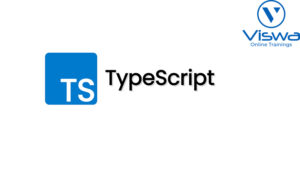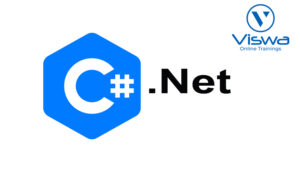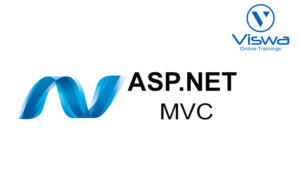AWS Sysops Administrator Certification Training
One of the top providers of online IT training worldwide is VISWA Online Trainings. To assist beginners and working professionals in achieving their career objectives and taking advantage of our best services, We provide a wide range of courses and online training.
Learners : 1080
Duration : 30 Days
About Course
Someone who offers the necessary knowledge and expertise linked to how cloud computing functions is our AWS SysOps Administrator. He or she is involved at every stage of a cloud project’s life cycle. On a specific AWS platform, an AWS SysOps Administrator deploys, manages, and runs numerous necessary systems. These experts additionally consider the upkeep and management of the AWS infrastructure within their organisations.
AWS Sysops Administrator Training Course Syllabus
✔ Introduction to AWS Sysops Administrator
✔ Exam Blueprint
✔ Monitoring & Reporting
✔ CloudWatch Introduction
✔ Monitoring EC2 With Custom Metrics
✔ Monitoring EBS
✔ Monitoring ELB
✔ Monitoring Elasticache
✔ Metrics From Multiple Regions & Custom Dashboards
✔ Create A Billing Alarm
✔ AWS Organizations
✔ AWS Resource Groups & Tagging
✔ Cost Explorer & Cost Allocation Tags
✔ EC2 Pricing Models
✔ AWS Sysops Administrator Config
✔ AWS Config Vs AWS CloudTrail Vs CloudWatch
✔ Health Dashboards
✔ Deployment & Provisioning
✔ Deploy An EC2 Instance Lab
✔ EC2 Launch Issues
✔ EBS Volumes And IOPS
✔ What Is A Bastion Host?
✔ Elastic Load Balancers
✔ ELB Error Messages
✔ ELB CloudWatch Metrics
✔ Deploying An Application Load Balancer Lab
✔ AWS Systems Manager
✔ Placement Groups
✔ High Availability
✔ Elasticity & Scalability 101
✔ RDS And Multi-AZ Failover
✔ RDS & Using Read Replicas
✔ RDS & Using Read Replicas Lab
✔ RDS What Versions
✔ RDS – Encrypting RDS Snaps
✔ Sharing Encrypted RDS Snapshots with Other AWS Accounts
✔ Which Services have Maintenance Windows
✔ Elasticache
✔ Aurora Lab
✔ Trouble Shooting Potential Autoscaling Issues
✔ Cloud Front & Cache Hit Ratios
✔ Storage & Data Management
✔ Introduction to S3
✔ S3 Lab
✔ S3 Lifecycle Policies
✔ MFA Delete
✔ S3 Encryption
✔ S3 Encryption Lab
✔ EC2 Volume Types
✔ Upgrading EC2 Volume Types – Lab
✔ Encryption & Downtime
✔ KMS & CloudHSM
✔ AMIs
✔ Sharing AMIs
✔ Storage Gateway
✔ Introducing Athena
✔ Athena Lab
✔ Introduction To EFS
✔ EFS Lab
✔ Security & Compliance
✔ Compliance On AWS
✔ DDOS
✔ AWS Marketplace Security Products
✔ IAM Custom Policies Lab
✔ Roles & Custom Policies Lab
✔ MFA & Reporting With IAM Lab
✔ Security Token Service
✔ Security & Logging
✔ AWS WAF
✔ AWS Hypervisors
✔ Dedicated Instances Vs Dedicated Hosts
✔ AWS Systems Manager EC2 Run Command
✔ AWS Systems Manager Parameter Store
✔ pre-signed URLs with S3
✔ Inspector vs Trusted Advisor
✔ AWS Service Limits
✔ Shared Responsibility Model
✔ Other Security Aspects
✔ CloudTrail – Turning It On and Validating Logs
✔ Networking
✔ VPC Overview
✔ Build Your Own Custom VPC – Part 1
✔ Build Your Own Custom VPC – Part 2
✔ Creating a NAT Instance
✔ Network ACLs and Security Groups
✔ VPC Endpoints
✔ VPC Flow Logs
✔ VPC Clean Up
✔ AWS Sysops Administrator Direct Connect
✔ DNS
✔ Register a Domain Name Lab
✔ Simple Routing Policy Lab
✔ Weighted Routing Policy Lab
✔ Latency Routing Policy Lab
✔ Failover Routing Policy Lab
✔ Geolocation Routing Policy Lab
✔ Automation to AWS Sysops Administrator
✔ Introducing CloudFormation
✔ CloudFormation Lab
✔ Introducing ElasticBeanstalk
✔ Elastic Beanstalk
✔ OpsWorks
✔ Service Catalog
✔ S3 Bucket Policies & Wildcards
✔ VPC Peering
✔ HTTPS & Storing SSL Certificates
✔ Cloud Formation Best Practices
✔ Cloud Formation Failed Rollback
| Live Instructor Based Training With Software |
| Lifetime access and 24×7 support |
| Certification Oriented content |
| Hands-On complete Real-time training |
| Get a certificate on course completion |
| Flexible Schedules |
| Live Recorded Videos Access |
| Study Material Provided |
AWS Sysops Administrator Training - Upcoming Batches
7th NOV 2022
8 AM IST
Coming Soon
AM IST
5th NOV 2022
8 AM IST
Coming Soon
AM IST
Don't find suitable time ?
CHOOSE YOUR OWN COMFORTABLE LEARNING EXPERIENCE
Live Virtual Training
-
Schedule your sessions at your comfortable timings.
-
Instructor-led training, Real-time projects
-
Certification Guidance.
Self-Paced Learning
-
Complete set of live-online training sessions recorded videos.
-
Learn technology at your own pace.
-
Get access for lifetime.
Corporate Training
-
Learn As A Full Day Schedule With Discussions, Exercises,
-
Practical Use Cases
-
Design Your Own Syllabus Based
AWS Sysops Administrator Training FAQ'S
The cloud computing platform Amazon Web Service is adaptable, stable, scalable, simple to use, and reasonably priced. It offers companies of all sizes cloud computing, databases, storage, content distribution, and a number of other cutting-edge services. There are more than 200 completely functional services offered by data centres worldwide.
An AWS Administrator’s primary task is to set up cloud management services on AWS for the organization. AWS Certified SysOps Administrator Associate also performs the following extra yet important roles.
- Firstly, Managing the complete AWS life cycle, along with security, provisioning, and automation.
- Secondly, Administrating and establishing the architecture of multi-tier systems
- Thirdly, Performing services such as kernel patching, errata patching, and software upgrades
- Fourthly, Effectively monitoring performance degrees and their availability
- Lastly, Creating backups and managing disaster recovery
Get ahead in your career by learning AWS Sysops Administrator through VISWA Online Trainings
For their apps and workloads, cloud architects may utilise AWS Well-Architected to build secure, high-performing, resilient, and efficient infrastructure. It is supported by five pillars: operational excellence, security, dependability, performance effectiveness, and cost optimisation. Customers and partners may evaluate architectures uniformly and build designs that can evolve over time with the help of AWS Well-Architected.
In order to create company value, the operational excellence pillar concentrates on continuously improving processes and procedures while operating and monitoring systems. Major topics include automating adjustments, responding to incidents, and establishing norms to guide everyday operations.
The security pillar places a high premium on securing data and systems. Important topics include protecting the integrity and confidentiality of data, identifying and controlling who has access to what through privilege management, securing systems, and putting processes in place to address security events.
Reviews
 Lavanya Posina2024-09-30To get the SAP S4HANA MM training is really worth from VISWA Technologies. I would like to thank you for providing an excellent training.
Lavanya Posina2024-09-30To get the SAP S4HANA MM training is really worth from VISWA Technologies. I would like to thank you for providing an excellent training. Krishna Grandhi2024-09-19I attended PBCS course. Trainer has good knowledge and his explanation is easy to understand. The support team is also supportive during the training period. Overall experience is good.
Krishna Grandhi2024-09-19I attended PBCS course. Trainer has good knowledge and his explanation is easy to understand. The support team is also supportive during the training period. Overall experience is good. Siddhartha Mothukuri2024-09-10Learnt SAP EWM and it has been a really good experience with VISWA Online Trainings and trainer has been excellent in terms of his understanding in business as well as SAP. Thank you
Siddhartha Mothukuri2024-09-10Learnt SAP EWM and it has been a really good experience with VISWA Online Trainings and trainer has been excellent in terms of his understanding in business as well as SAP. Thank you Lakshmiprasanna Annem2024-08-01Thanks chaitanya arrange for sap bw on Hana job support. I will recommend definitely anyone.
Lakshmiprasanna Annem2024-08-01Thanks chaitanya arrange for sap bw on Hana job support. I will recommend definitely anyone. VINOD reddy2024-07-23Amazing Oracle Transportation Management (OTM) training! Definitely recommend.
VINOD reddy2024-07-23Amazing Oracle Transportation Management (OTM) training! Definitely recommend. Arvind P2024-06-28Good institute. Very responsible. As a trainer I got a good experience with them
Arvind P2024-06-28Good institute. Very responsible. As a trainer I got a good experience with them srinivasulu p2024-05-14I have recently enrolled azure cloud security training. There was lots of interaction sessions. It was best online learning platform.
srinivasulu p2024-05-14I have recently enrolled azure cloud security training. There was lots of interaction sessions. It was best online learning platform. Mahendra Reddy2024-05-14I would definitely recommend it anyone looking for generative AI course. This is friendly course thanks phani kumar
Mahendra Reddy2024-05-14I would definitely recommend it anyone looking for generative AI course. This is friendly course thanks phani kumar




